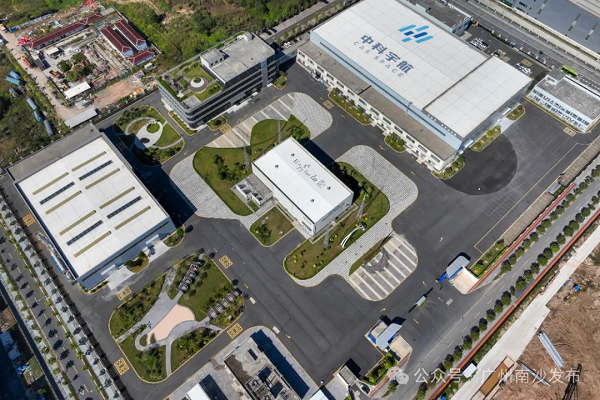Commercial aerospace, low-altitude economy drive Guangdong's high-quality growth

Aerial view of CAS Space. [Photo/WeChat account: gz_nanshafabu]
South China's Guangdong province is leveraging the burgeoning sectors of commercial aerospace and the low-altitude economy to propel its high-quality development.
At a conference on high-quality development, organized by the provincial authority on Feb 5, key industry leaders shared innovative strategies to accelerate the establishment of a modern industrial system, fostering consensus and unity towards Guangdong's modernization.
During a subforum of the conference, Yang Yiqiang, chairman of CAS Space, a leader in commercial spaceflight, presented the company's latest research and production advancements and offered insights and suggestions for industrial development.
"In September this year, CAS Space's liquid carrier rocket 'Lijian-2' and the Chinese Academy of Sciences' Qingzhou cargo spacecraft will be launched," Yang said.
This marks the first participation of a Chinese commercial aerospace enterprise in the low-cost cargo transportation project for the Chinese space station.
Located in Nansha, Yang's company's industrialization base is the first commercial aerospace base in Guangdong province covering the entire industry chain. Currently, CAS Space possesses a complete capability of research and development, testing, production, and launch. Its solid rocket, "Lijian-1" has successfully completed six launches, deploying 57 satellites.
Yang highlighted that CAS Space's establishment in the Guangdong-Hong Kong-Macao Greater Bay Area is attributed to the region's world-class supply chain, robust industrial foundation, technological prowess, talent advantages, and favorable business environment.
In an interview, Lionel M. Ni, president of the Hong Kong University of Science and Technology (Guangzhou), said that the low-altitude economy is an emerging industry with broad prospects. As technology continues to mature and the demand for three-dimensional spatial transportation grows, its importance will become increasingly prominent, Ni said.
HKUST (Guangzhou) established the Low-Altitude Economy Research Institute to promote research and industrialization in the low-altitude economy in April 2024. According to Ni, the institute has made significant progress in areas such as material design, battery endurance, and positioning scheduling since then.
All rights reserved. Presented by China Daily









